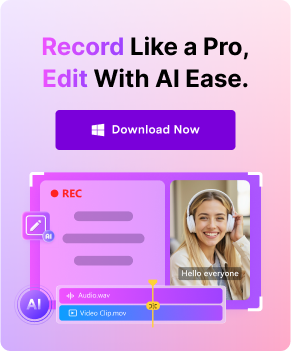Advantages of Distance Learning
Traditionally, distance learning was associated with correspondence courses in which students interacted with the college or institution via letters. However, with the recent advancements in technology, the range of distance learning has expanded considerably, making it a more attractive mode of education than classroom-learning.
Now it involves innovative methods of providing education through the internet and electronic devices, which can be accessed at anytime and anywhere around the globe. With the advent of e-books and audio-books, it has become a lot easier to keep a vast ocean of knowledge within one’s reach, unlike before.

The students can now stay in touch with the teachers and each other, engage in interactive sessions and share study material without physically being present there. In crux, learning is now just one zoom-call away.
Moreover, distance learning is not just limited to the internet but can also be delivered through other electronic means such as television, DVDs, and printed notes to students who don’t have access to the internet. This means that quality education can now reach even the most distant locations of the world. Education is slowly drifting towards e-learning and has become an alternative for some while given an opportunity for the less fortunate ones.
The Era of Global Classrooms
People nowadays are doing multiple things at once, and nobody has the time and energy for classrooms that require both mental and physical presence. While some are supporting families by working part-time, others are doing 9 to 5 jobs, and traditional education for such people is just not feasible.
Through online education, students can now get degrees while handling other duties and look for better earning-prospects with the degree in hand.
A student can now learn from the comfort of his home, interact with classmates and professors, gain access to study material, and take exams, all through the screen of a phone or a laptop. There is no bar of time unless the classes are being held live and the student can go back to the lectures as many times as he likes.
We have entered the age of global classrooms in which the student can be sitting in one part of the world, and the teacher in another, and learning would still be possible. It surpasses the restraints and taboos of age, gender, color, and nationality, making education a global affair that is free from discrimination.
What are Some Advantages of Remote Learning
Enlisted are the top 10 benefits of distance learning for students to make them think twice about their preferred mode of education. Also, these points explain the merits of e-learning over the traditional on-campus one:
1. No Restraint of Time and Place
The most appealing aspect of distance learning is that there are no constraints of time and place unless the class is being conducted live. It is flexible both for the institutions as well as students and ensures minimum hindrance in the learning process. Especially for students who live in remote areas or far from campus, e-learning is the most feasible mode of education for them.
Also, the students can stay more organized and engage in multiple courses by arranging the learning tasks according to their schedule. Distance education also is a more convenient mode for institutions. This is because it doesn’t require much infrastructure and even teachers can teach from their homes.
2. Recording of Lectures
Today’s advanced technology provides another impressive power to the students which traditional learners never had. It is the ability to record lectures for later use. Also, this feature has altered the structure of learning by freeing it from the transience of time. Students can now record lectures, watch them later, and gain a better insight.
Reviewing is a proven method of getting new information that is mostly skipped the first time. Now a student doesn’t need to worry about losing focus and missing out on crucial information. This is because the lectures are always going to be available. Now, this is the biggest advantage among multiple distance learning advantages.
 Pro-tip
Pro-tipRecording lecutres of the presentations for reviewing and after class homework is a great way to learn. I would recommend an easy computer and webcam screen recorder for you to capture classroom lectures without any prefessional skills.
3. Ideal for People with Social Anxiety
Behavioural issues such as social anxiety are very common in students these days. These prevent them from openly interacting in the classrooms where some students or teachers might seem intimidating. This prevents the entire class from active participation and also limits the scope of learning. Also, distance education ensures that no question is left unanswered because of the fear of speaking.
On e-platforms, the students can either interact directly with the professor or send their queries through messages. Thus, written communication skills are also sharpened. Moreover, students who in traditional systems had almost no opportunities can now look forward to better options.
4. Comfortable Learning
Classroom learning can be hasty and tiresome, thus, affecting the efficiency of the students as they are expected to respond to questions very quickly and don’t have much time to think. On online education platforms, the sessions for discussion are separate from that of lectures. Also, the students have ample time to prepare for these discussions. They can also prepare their responses for questions accordingly.
This ensures better performance as well as better results, thus enhancing the overall self-esteem of the students. As not all students have the same capacity for absorbing information, the slow learners can study at their own pace. Furthermore, they can catch-up with the rest of the class as per their own convenience.
5. Saving Money and Resources
E-distance education programs are much more affordable than on-campus courses. And hence, its reach is to broader socio-economic strata of students who otherwise couldn’t have afforded higher-education. Online education is not only cheaper fee-wise, but it also saves the expenses of living near the college or in the hostel. These include the apartment/hostel rent, food and electricity bills, and so much more.
Also, in distance-learning courses, all that students need is a computer and a working internet connection. This is how they can learn from the comfort of their homes. Thus, the monetary funds can be applied elsewhere, saving students from heavy loans that take a lifetime to repay.
6. Enhancing Communication Skills
Distance learning is a safe place for those who are not comfortable socially and gives a chance to the disabled and sick who can’t attend college. And therefore, everyone gets a chance to communicate and interact with others through group projects, assignments, and discussions.
This provides equal access to every student and removes the limits of traditional face-to-face interaction. Also, the students of all backgrounds get to learn how to do coordinated-work who otherwise would have felt shunned socially.
Other than vocal communication skills, it also enhances the written communication of the students. Moreover, the lectures usually have transcripts and queries are also put forward through messages or email. The discussion forums have proved to be quite effective. This is because they motivate students for interaction by providing a safe place to present their views.
7. Relief from Commuting
Commuting is the journey from home to work/college and is one of the most hectic activities of the day. Sometimes students live very far from their colleges, and commuting takes most of their energy and time. Online education saves one not only from travelling in tightly packed buses and trains but also leaves energy for doing other important work while saving money at the same time.
Moreover, commuting is not possible for everyone, especially for those having health issues and living in distant places. Hence, online education is the only feasible alternative where resources can be preserved. Moreover, the quality of education is ensured.
8. Variety in Education
Normally, students are limited to a few subjects, and the faculty available at the institution is their only option. But online education allows students to study multiple courses from various platforms and is also not restricted to being taught by the teachers of just one institution. The student can take a course in English from one institution and that of French from another.
Also, these courses can be taken from the comfort of the house. The students have the liberty to manage their time according to their liking. Moreover, this way, more courses can be squeezed into the schedule that traditional learning isn’t capable of allowing.
9. Professor Availability
The Internet has changed a lot about teaching and the most pioneering change has been compensating for the scarcity of staff as well as extending hours of availability.
In traditional institutions, teachers are available only for limited hours, and when they take days off, the wait can extend to even a week. Although teachers have specific hours of work-time even on online platforms, they can attend to the queries whenever they have time.
Most students leave written questions, and the instructor can reply to that even before bedtime. Also, it saves a lot of time both for the professors as well as students. Furthermore, this has shown to reduce stress. It has increased satisfaction as one has more freedom of performing as opposed to the traditional mode of learning.
10. Earning and Learning
Education has become a very costly affair, and although online learning is comparatively cheaper, it still is not free. The majority of students who go for e-learning are those who want higher education but have the liability of jobs. Also, these students cannot leave their work to attend classroom lectures, and e-learning is the only mode that suits their situation.
This way, they can earn a living while pursuing a degree and work for a better and brighter future without having to quit the job. With an improved qualification come better prospects for earning, which in turn safeguard a better future.
Conclusion
E-learning is a very efficient method of imparting knowledge and attaining results in a shorter period of time. Both instructors and learners get an opportunity to work at a comfortable pace while saving on resources that are consumed in traditional learning.
Also, online education has given students the liberty to model their learning experience according to their liking. While traditional education has its advantages and will never be replaced, e-learning is in no way inferior. Now, this completely depends on if the students are willing to learn.
Furthermore, it has greatly impacted the relationship between electronic devices, the internet, and education. It is surely taking us towards a more advanced society. Distance learning is still growing in the education arena with unlimited opportunities and especially in emergency times like that of a pandemic. Moreover, its importance has been highlighted the most in recent times.






